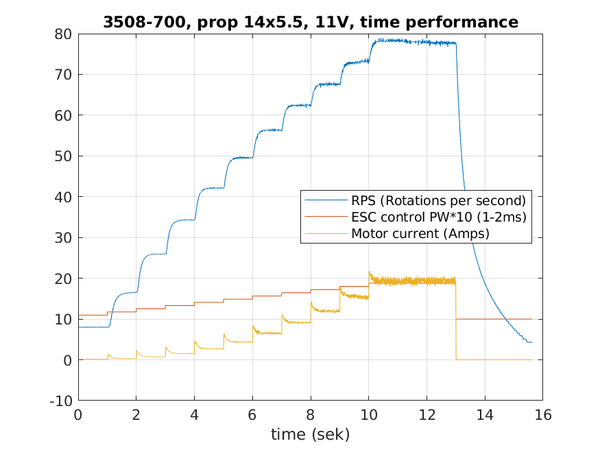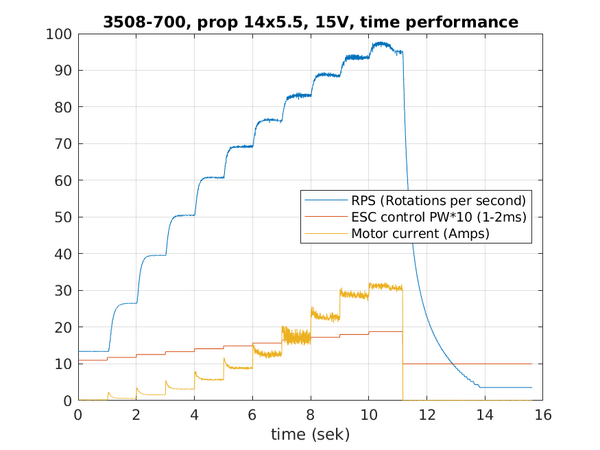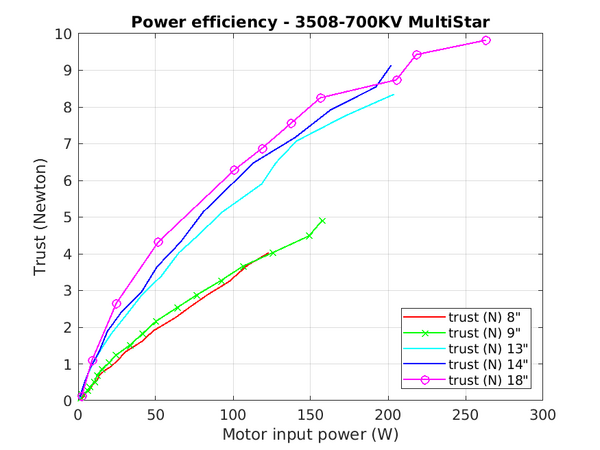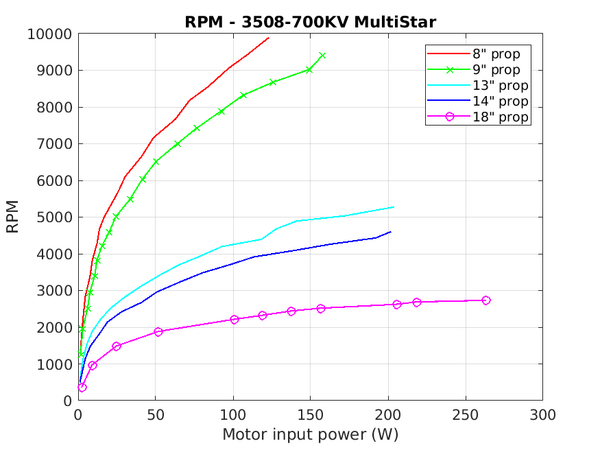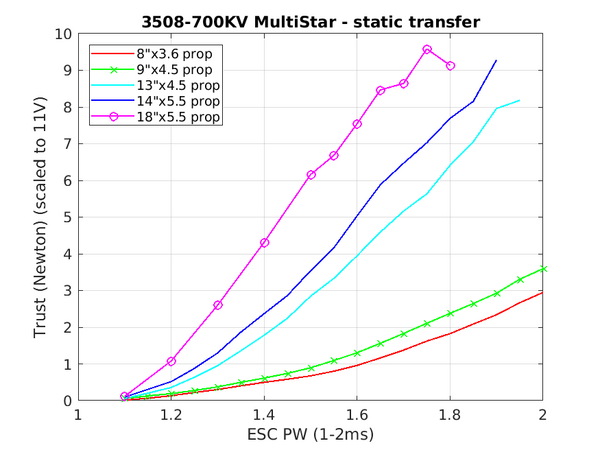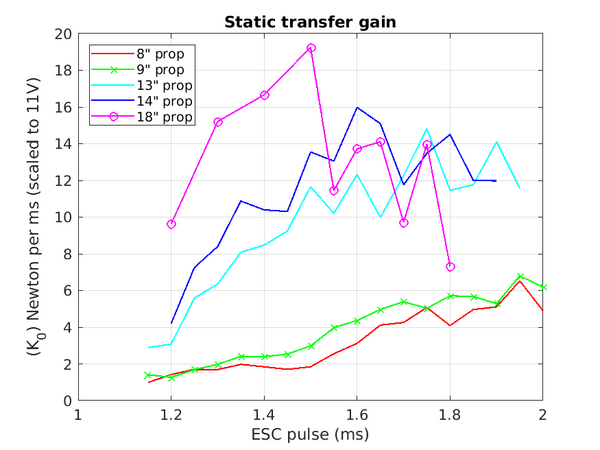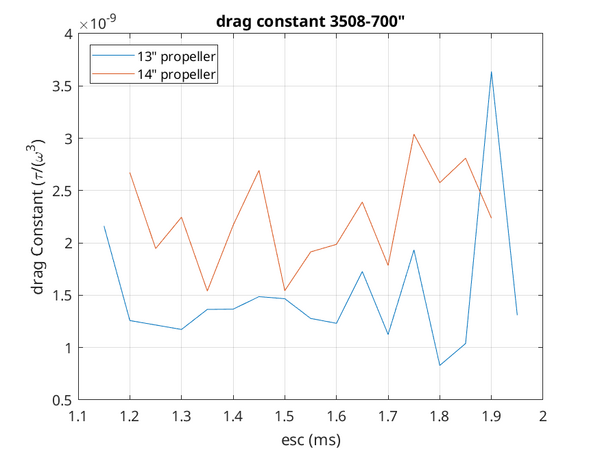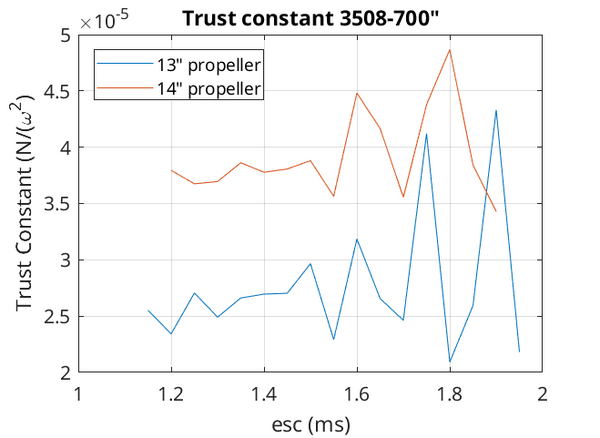Drone motor performance
Back to Drone control
Contents[hide] |
Motor and propeller performance
Measured with the "motortest" firmware and the python app below. The used motor is the 3508-700KV Turnigy Multistar 14 Pole Brushless and a 14x5.5 carbon propeller. The ESC is a Hobby-wing x-rotor 40A controller.
Time responce
With 11 V supply (left) and 15V (right).
From 1.1ms to the ESC (idle) to 1.9ms almost full throttle. The ESC update frequency is 400 Hz.
Static response 3508-700
Transfer measurement with different propellers. The Hobby Wing controller is calibrated to 1ms=off, 2ms=full power. Measurement is in a fixed setup on a scale with 1g resolution. Propeller 50cm above ground level. Power is a lab power supply. Motor and ESC temperature below 50 degree C.
The propellers
- 8"x 3.8 APC composite propeller
- 9"x 4.5 APC composite propeller
- 13"x 4.5 carbon fiber
- 14"x 5.5 carbon fiber
- 18"x 5.5 carbon fiber Quanum
(Left) trust delivered for each propeller size as a function of motor input power. It shows that bigger propellers are more power-efficient. (Right) RPM as a function of input power.
Static gain 3508-700
For the same data as above, bot now related to the ESC input pulse width. The ESC has been calibrated to 1ms is zero power, 2ms is maximum power. All data has been scaler to 11V, as the curves scale almost 1:1 with the input voltage.
(Left) Trust curve as a function of ESC pulse width. Bigger propellers require more power but deliver more trust. (Right) Static transfer gain as a function of ESC pulse width. The transfer gain is fairly constant (within a factor 2) in the useful trust area.
Drag constant
Drag constant is calculated based on the change in motor current divided with the change in rotation speed squared
Kd = dI*Km / d(w²)
At different motor controller pulse length (all recorded with a battery voltage of 11 V).
This value is intended to be used when simulating a drone motor
Drag-constant for the 3508-700 motor with 13" and 14" propeller, the drag is proportional to rotation speed (in radians per second) to the power of 3.
Kd ~ 1.5e-9 for 13" propeller and
Kd ~ 2e-9 for the 14" propeller.
Trust constant
The trust constant gives the relation to trust (in Newton) from the rotation speed (in radians per second) squared.
Trust-constant for the 3508-700 motor with 13" and 14" propeller, the drag is proportional to rotation speed (in radians per second) to the power of 2.
Kt ~ 2.7e-5 for the 13" propeller and
Kt ~ 3.7e-5 for the 14" propeller
